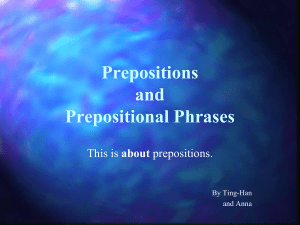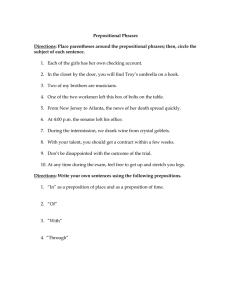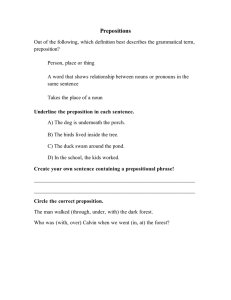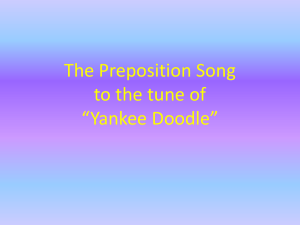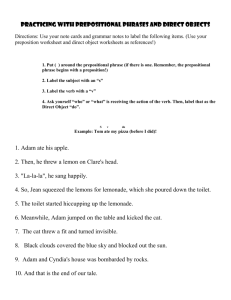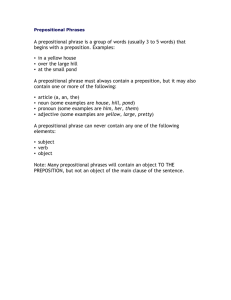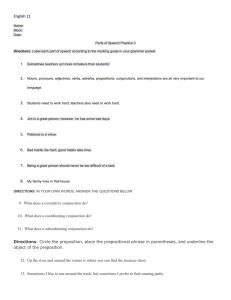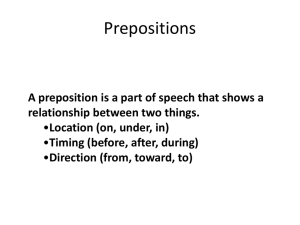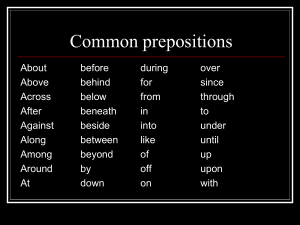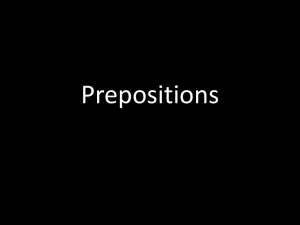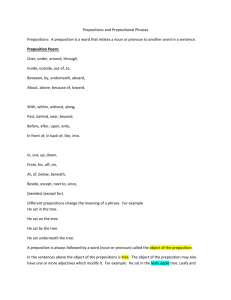Prepositions and Prepositional Phrases
advertisement
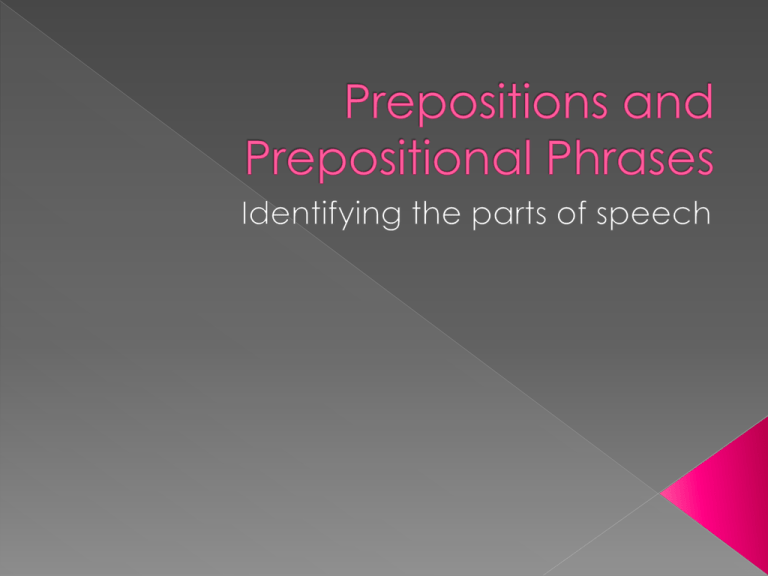
To avoid fragments and to state ideas as complete thoughts, proofread to identify the subjects and verbs of each sentence. Identifying prepositional phrases as you proofread will help you locate the subject of the sentence. A preposition is a word that has a noun or pronoun as its object and states a relationship between its object and another word. For example – I went into the building to find my friend. A prepositional phrase begins with a preposition and ends with the object of the preposition. For example – Volunteering is the act of serving others without reward. Common prepositions with possible objects… Preposition object Preposition object About the house In my wallet Along the street For Texas After the movie From the past As the parent Of the boys Below the surface On the chair By evening To the college During the storm With patience Prepositions often modify the location of an object; for example, in, out, next, with, under, over, inside, outside, next to, without, underneath, between, etc… Prepositions often modify time; for example, during, after, before, since, etc… Prepositional phrases are everywhere in English sentences because they can modify nouns, verbs, adjectives, and adverbs. To modify means to change somewhat the form or qualities of; alter partially; amend: to modify a contract To modify descriptive, limiting, or particularizing meaning. › For example - In a good man, good modifies man 1. Try these: Identify every prepositional phrase in the following sentences and indicate which word each phrase is modifying. After the long hike, the children ate with gusto. 2. Pollution experts say we need stricter controls on emissions from all gasoline engines. 3. Outside the theater, eager young people waited impatiently in line for tickets. 4. The wise man on my right ate nothing and slept like a baby during the flight. 5. The songs of whales are full of beauty and variety, and they change in subtle ways over the course of a mating season
